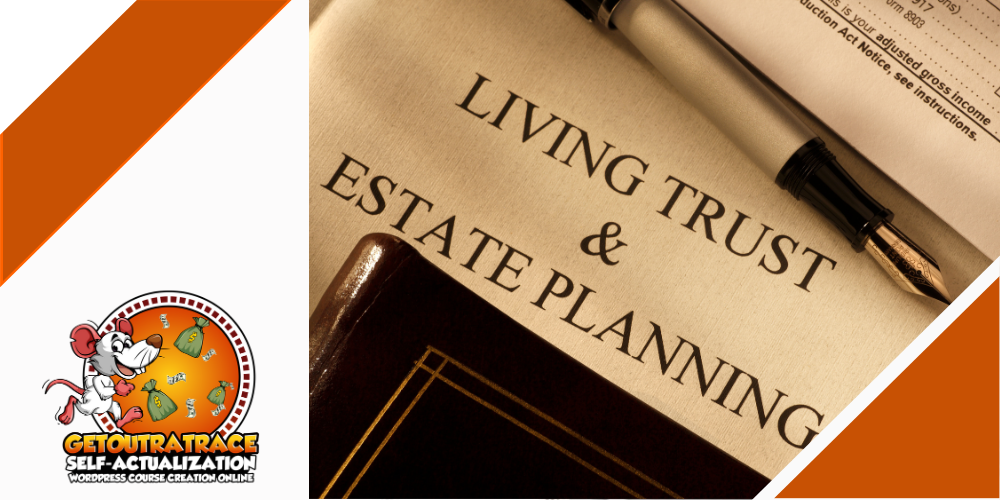SELF ACTUALIZATION
Create a website platform from your passion.
Like a driver’s license, it unlocks numerous opportunities for monetization.
Phone number
07729 866 544

In the UK, when you die, your estate consists of all the assets and possessions you leave behind, including property, money, investments, personal belongings, and any debts or liabilities you may have. This estate is typically subject to inheritance tax and will be distributed according to your will or the laws of intestacy if you haven’t made a will. It’s important to plan your estate carefully to ensure your wishes are carried out and your loved ones are provided for. Here is are the basics of what would be involved when someone asks what is your estate.
Assets: This includes everything you own, such as:
Liabilities: These are debts or obligations you owe, such as:
Inheritance Tax: In the UK, inheritance tax (IHT) may be payable on your estate if its value exceeds certain thresholds. As of my last update, the tax-free threshold is £325,000 (known as the “nil-rate band”), with additional allowances for passing on your home to direct descendants. Anything above this threshold may be subject to a 40% tax rate.
Distribution: The distribution of your estate is determined by your will or, if you don’t have one, by the laws of intestacy. Your will specifies who will inherit your assets and in what proportions. If you die intestate (without a will), the intestacy rules dictate how your estate will be distributed, typically prioritizing spouses, children, and other close relatives.
Probate: Probate is the legal process of administering a deceased person’s estate. It involves proving the validity of the will (if there is one), identifying and valuing assets and liabilities, paying any outstanding debts and taxes, and distributing the remaining assets to the beneficiaries.
Executor: An executor is the person or institution named in your will who is responsible for carrying out your wishes and managing the estate during the probate process.
Overall, proper estate planning, including creating a will and considering strategies to minimize inheritance tax, can help ensure that your estate is distributed according to your wishes and with minimal financial burden on your loved ones. Consulting with a solicitor or financial advisor specializing in estate planning can provide valuable guidance in this process. Unfortunately, the question of what is your estate is like the question of what is your credit score, they both need to be asked more often.

The concept of estates and inheritance has a long history, dating back thousands of years across various civilizations. Here’s a brief overview of the history of estates and inheritance, focusing particularly on the UK and broader global contexts:
Ancient Civilizations: In ancient societies such as Mesopotamia, Egypt, Greece, and Rome, inheritance laws were often based on social hierarchies and familial lines. Land and property were typically passed down through male descendants, with the eldest son often inheriting the bulk of the estate. In some cases, inheritance laws were formalized through written codes or customs.
Feudalism: In medieval Europe, feudalism structured society around a hierarchical system of land ownership and obligations. The feudal lord granted land (fiefs) to vassals in exchange for loyalty and military service. Inheritance within the feudal system was governed by strict rules, often favoring primogeniture (inheritance by the eldest son) to keep estates intact and maintain social order.
English Common Law: The development of English common law during the Middle Ages influenced inheritance practices in England and later the British Empire. Over time, common law principles, along with statutes enacted by Parliament, shaped the rules governing estates and inheritance. Primogeniture was prevalent in England for many centuries, although it gradually gave way to more equitable distribution among heirs.
Evolution of Inheritance Laws: In the UK, inheritance laws underwent significant changes over the centuries. The Statute of Wills in 1540 allowed landowners to devise real property by will, providing greater testamentary freedom. Subsequent legislation, such as the Inheritance Act of 1833 and the Administration of Estates Act of 1925, further modernized and standardized inheritance practices.
Modern Estate Planning: In contemporary times, estate planning has become increasingly sophisticated, with individuals using trusts, wills, and other legal instruments to manage their assets and minimize tax liabilities. The rise of globalization has also led to greater complexity in estate planning, as individuals may have assets in multiple jurisdictions subject to different laws and tax regimes.
Global Perspectives: Inheritance practices vary widely across cultures and countries, reflecting diverse social, economic, and legal contexts. While some societies adhere to strict inheritance rules based on tradition or religious beliefs, others have adopted more egalitarian approaches that prioritize equitable distribution among heirs. In recent years, there has been growing recognition of the need to address issues of wealth inequality and intergenerational transfers of wealth on a global scale.
Overall, the history of people’s estates reflects the complex interplay of legal, social, and economic factors shaping inheritance practices over time.

If someone asks you what is your estate? what will your reply be? An estate is important for several reasons:
Asset Protection: Your estate represents the culmination of your life’s work and achievements. It includes assets such as property, investments, and personal belongings that you’ve accumulated over time. Proper estate planning helps protect these assets and ensures they are passed on to your chosen beneficiaries according to your wishes.
Financial Security for Loved Ones: Planning your estate allows you to provide for your loved ones after you’re gone. By specifying how your assets should be distributed, you can ensure that your family members, friends, or charitable organizations receive the financial support they need.
Minimizing Tax Liability: Estate planning strategies can help minimize the tax burden on your heirs. Inheritance tax, estate tax, and other levies can significantly reduce the value of your estate if not managed effectively. By employing techniques such as trusts, gifting, and tax-efficient investment structures, you can potentially reduce the amount of tax payable and preserve more wealth for your beneficiaries.
Avoiding Family Disputes: Clear and comprehensive estate planning can help prevent conflicts and disputes among family members. By explicitly outlining your wishes regarding asset distribution, you reduce the likelihood of disagreements or misunderstandings arising after your death. This can help preserve family harmony and relationships.
Ensuring Business Continuity: If you own a business, estate planning is essential for ensuring its smooth transition to the next generation or new ownership. By designating successors, establishing succession plans, and implementing strategies to address potential challenges, you can safeguard the continuity and viability of your business operations.
Healthcare and End-of-Life Decisions: Estate planning encompasses more than just financial matters. It also involves making decisions about your healthcare preferences and end-of-life care. Advance directives, such as living wills and healthcare proxies, allow you to express your wishes regarding medical treatment and appoint someone to make decisions on your behalf if you become incapacitated.
Peace of Mind: Finally, having a well-structured estate plan provides peace of mind knowing that your affairs are in order and your loved ones will be taken care of according to your wishes. It offers reassurance that your legacy will endure and that you’ve done everything possible to protect your assets and provide for the future.
In summary, an estate is important because it represents your legacy and allows you to provide for your loved ones, protect your assets, minimize tax liabilities, and ensure continuity in business and personal affairs. Proper estate planning is crucial for achieving these objectives and securing peace of mind for yourself and your family.

Setting up an estate involves several key steps. Here’s a general guide to help you navigate the process:
Assess Your Assets and Liabilities: Begin by taking stock of all your assets, including real estate, investments, bank accounts, retirement accounts, life insurance policies, business interests, and personal belongings. Also, make a list of your debts and liabilities, such as mortgages, loans, and outstanding bills.
Define Your Goals and Objectives: Determine what you want to achieve with your estate plan. Consider factors such as providing for your loved ones, minimizing tax liabilities, preserving assets, supporting charitable causes, and ensuring the continuity of your business, if applicable.
Create a Will: A will is a legal document that specifies how you want your assets to be distributed after your death. It allows you to designate beneficiaries, name guardians for minor children, appoint an executor to oversee the estate, and address other important matters. You can draft a will on your own using a template or seek assistance from a qualified estate planning attorney to ensure it complies with relevant laws and reflects your wishes accurately.
Consider Trusts: Trusts are legal arrangements that allow you to transfer assets to designated beneficiaries while retaining control over how those assets are managed and distributed. Trusts can be useful for achieving various estate planning goals, such as minimizing estate taxes, protecting assets from creditors, providing for minor children or individuals with special needs, and facilitating charitable giving. Common types of trusts include revocable living trusts, irrevocable trusts, and special needs trusts.
Review Beneficiary Designations: Certain assets, such as retirement accounts, life insurance policies, and payable-on-death (POD) accounts, pass directly to designated beneficiaries outside of probate. Review and update beneficiary designations regularly to ensure they align with your estate plan and reflect your current wishes.
Plan for Incapacity: In addition to addressing what happens after your death, your estate plan should also include provisions for managing your affairs in the event of incapacity. Consider establishing powers of attorney for financial and healthcare matters, appointing trusted individuals to make decisions on your behalf if you become unable to do so yourself.
Consult with Professionals: Estate planning can be complex, and the laws governing wills, trusts, and other legal instruments vary by jurisdiction. It’s advisable to seek guidance from qualified professionals, such as estate planning attorneys, financial advisors, and tax experts, who can help you navigate the process, identify potential issues, and develop a comprehensive plan tailored to your needs and circumstances.
Review and Update Regularly: Life circumstances and laws change over time, so it’s essential to review and update your estate plan periodically to ensure it remains current and aligned with your goals and wishes. Major life events such as marriage, divorce, birth of children or grandchildren, significant changes in financial status, or relocation may necessitate revisions to your estate plan.
By following these steps and seeking appropriate professional guidance, you can establish an estate plan that protects your assets, provides for your loved ones, and achieves your long-term objectives.

If you pass away without making plans for your estate, several outcomes may occur depending on your jurisdiction’s laws. Here’s what typically happens:
Intestacy Laws: In the absence of a valid will or other estate planning documents, your estate will be distributed according to the intestacy laws of your state or country. These laws vary significantly by jurisdiction but generally prioritize spouses, children, and other close relatives as beneficiaries. The specific distribution scheme typically follows a predetermined hierarchy based on familial relationships.
Court Involvement: Without a will to guide the distribution of your assets, the probate court will oversee the administration of your estate. The court will appoint an administrator, typically a close relative or other interested party, to handle the estate’s affairs. This process can be time-consuming, costly, and subject to the court’s discretion.
Equal Distribution: In many jurisdictions, intestacy laws mandate an equal distribution of assets among eligible heirs, such as surviving spouses and children. This may not align with your preferences, especially if you have specific individuals or charitable causes you wish to support.
Potential Disputes: Intestacy can sometimes lead to disputes among family members over the distribution of assets. Without clear instructions from a will or trust, disagreements may arise regarding who is entitled to what portion of the estate, potentially leading to legal challenges and strained relationships.
State Involvement: In some cases, if no eligible heirs can be found, or if the deceased had no known living relatives, the estate may escheat to the state. This means that the government becomes the legal beneficiary of the estate, and the assets are used for public purposes.
Overall, dying without a will or estate plan can lead to uncertainty, delays, and unintended consequences for your estate and loved ones. It’s essential to take proactive steps to create a comprehensive estate plan that reflects your wishes and ensures your assets are distributed according to your preferences. Consulting with an estate planning attorney or financial advisor can help you navigate the process and develop a plan that meets your needs and objectives.

In conclusion, failing to make plans for your estate can lead to various undesirable outcomes. Without a will or other estate planning documents in place, your assets may be distributed according to intestacy laws, potentially resulting in a distribution scheme that doesn’t align with your wishes. The involvement of the probate court can lead to delays, expenses, and disputes among family members. Additionally, without clear instructions, there’s a risk of unintended consequences, such as assets passing to unintended beneficiaries or escheating to the state.
To avoid these issues and ensure your estate is handled according to your preferences, it’s crucial to create a comprehensive estate plan with the guidance of legal and financial professionals. This ensures that your assets are protected, your loved ones are provided for, and your wishes are carried out effectively. When someone asks you the question next time what is your estate? you will be better informed!
MONETIZE YOUR PASSION
©All rights reserved 2024 Getoutratrace.com
©All rights reserved 2024 Getoutratrace.com

Get notified about new ways people monetize their passions and more. Free digital products coming soon.